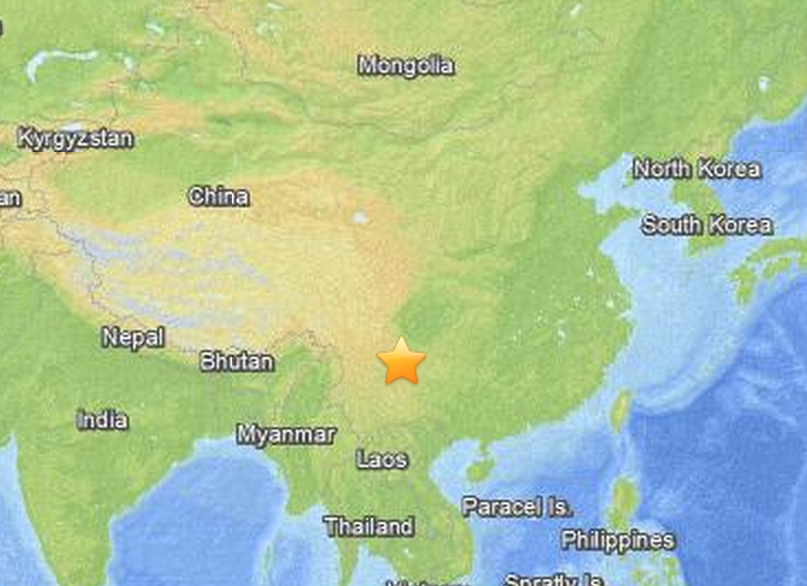Deadly Earthquake Strikes Southwestern China

Get the world’s most fascinating discoveries delivered straight to your inbox.
You are now subscribed
Your newsletter sign-up was successful
Want to add more newsletters?

Delivered Daily
Daily Newsletter
Sign up for the latest discoveries, groundbreaking research and fascinating breakthroughs that impact you and the wider world direct to your inbox.

Once a week
Life's Little Mysteries
Feed your curiosity with an exclusive mystery every week, solved with science and delivered direct to your inbox before it's seen anywhere else.

Once a week
How It Works
Sign up to our free science & technology newsletter for your weekly fix of fascinating articles, quick quizzes, amazing images, and more

Delivered daily
Space.com Newsletter
Breaking space news, the latest updates on rocket launches, skywatching events and more!

Once a month
Watch This Space
Sign up to our monthly entertainment newsletter to keep up with all our coverage of the latest sci-fi and space movies, tv shows, games and books.

Once a week
Night Sky This Week
Discover this week's must-see night sky events, moon phases, and stunning astrophotos. Sign up for our skywatching newsletter and explore the universe with us!
Join the club
Get full access to premium articles, exclusive features and a growing list of member rewards.
A devastating magnitude-6.1 earthquake struck southwestern China's Yunnan province yesterday (Aug. 3), killing hundreds of people, according to news reports.
The epicenter of the quake was 7 miles (11 kilometers) west-northwest of Wenping, China, and 18 miles (29 km) west-southwest of Zhaotong, China, the U.S. Geological Survey reported. The quake originated 6.2 miles (10 km) deep and struck at 4:30 p.m. local time (0830 UTC). There were several aftershocks in the hours after the initial earthquake, each measuring 4.5 to 4.7 in magnitude, according to the USGS.
As of this morning (Aug. 4), 398 people were confirmed dead, Xinhua reported, while more than 1,000 individuals were injured and over 200,000 people were displaced. Chinese Premier Li Keqiang flew to the disaster zone to look at the damage and said search-and-rescue efforts would be the first priority of emergency responders. China's National Committee for Disaster Reduction also issued a Grade I national disaster relief response, the highest-level response, to allocate resources to the region.
In a statement, U.N. Secretary-General Ban Ki-moon said he was "saddened by the loss of life, and the damage to homes and infrastructure," adding that the United Nations was "ready to lend its assistance to efforts to respond to humanitarian needs created by the disaster and to mobilize any international support needed."
Earthquakes of the size of the one that struck China yesterday are considered major, and they can be especially devastating when they occur in regions with poorly built infrastructure. Nany of the unreinforced homes and buildings in this part of China are particularly vulnerable to quake damage, according to the USGS. Photos from the scene showed collapsed walls, crushed cars and rubble covering the streets in parts of Ludian County.
An earthquake's magnitude is a measure of the energy released at the epicenter. Scientists know in a general sense what causes earthquakes but are unable to predict specific seismic events.
Follow Megan Gannon on Twitter and Google+. Follow us @livescience, Facebook & Google+. Original article on Live Science.
Get the world’s most fascinating discoveries delivered straight to your inbox.

 Live Science Plus
Live Science Plus










